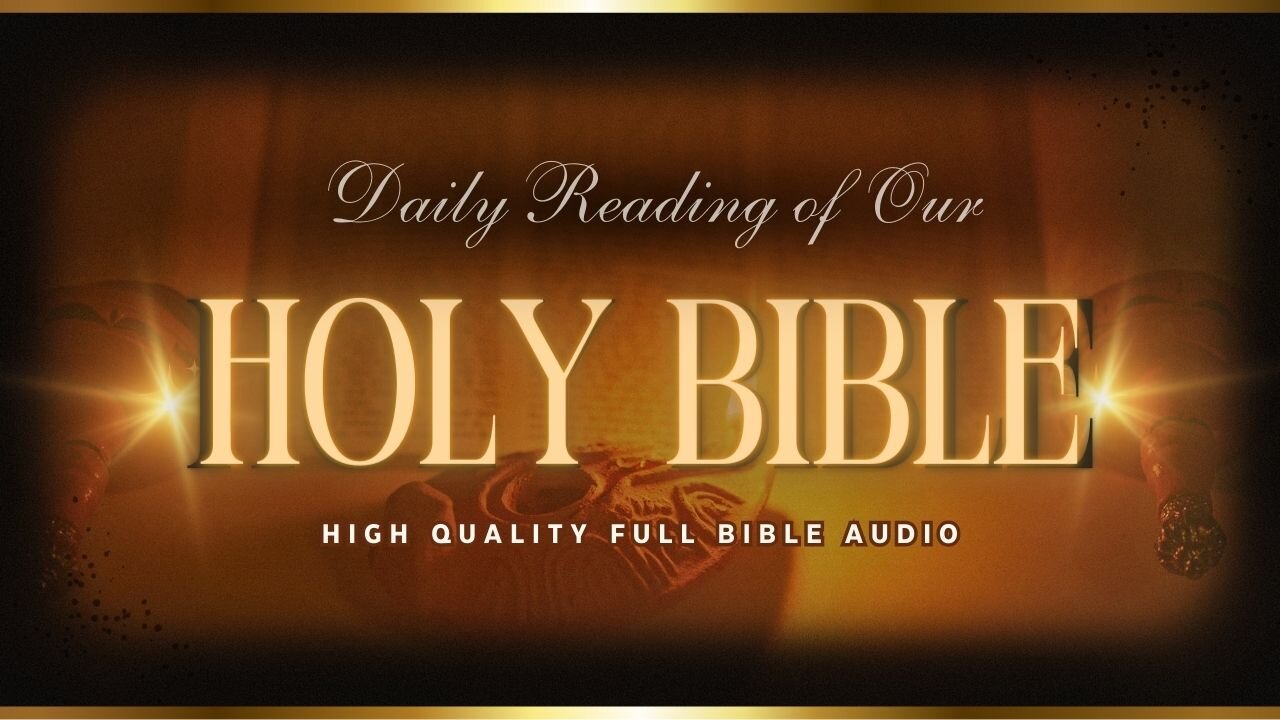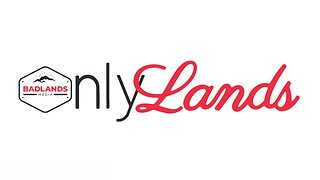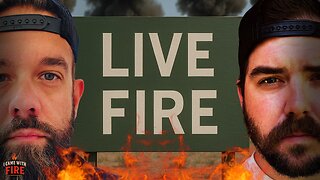Premium Only Content

Job 42:7-17 Psalm 31:6-13 Proverbs 13:8 18:11 Matthew 14:1-12 Mark 6:14-29 Luke 9:7-9 Bible Reading
In the final chapter of the book of Job, Job humbly submits to God's sovereignty and acknowledges His greatness. After a series of dialogues and debates with his friends, Job realizes his limited understanding and repents in dust and ashes. God restores Job's fortunes, blessing him with twice as much as he had before and bringing his suffering to an end.
Psalm 31:6-13:
In this portion of Psalm 31, the psalmist expresses trust and confidence in God, acknowledging Him as their refuge and deliverer. The psalmist recounts their distress and affliction but finds solace in God's steadfast love and mercy. They cry out to God for deliverance from their enemies, seeking refuge in His presence and rejoicing in His salvation.
Proverbs 13:8:
This proverb contrasts the wealth of the rich with the poverty of the poor, emphasizing that the rich may face oppression and threats to their lives because of their wealth. However, the poor are not in danger of such risks because they have nothing for others to take away from them. Ultimately, the proverb highlights the fleeting nature of material wealth and the importance of integrity and righteousness over riches.
Proverbs 18:11:
This proverb emphasizes the limitations of relying solely on material wealth for security and protection. It warns against putting one's trust in riches, as they can prove to be unreliable and temporary. Instead, the proverb encourages seeking refuge in the Lord, who offers true security and eternal blessings.
Matthew 14:1-12:
This passage narrates the events surrounding the death of John the Baptist. King Herod hears about Jesus and is troubled by reports of His miracles, believing that John the Baptist has been raised from the dead. The narrative then recounts the circumstances leading to John's arrest and eventual execution at the request of Herodias' daughter, who performs a dance for Herod's birthday.
Mark 6:14-29:
Similar to Matthew 14:1-12, this passage describes the death of John the Baptist. It includes Herod's perplexity about Jesus and the circumstances leading to John's imprisonment and beheading. The narrative highlights the political intrigue and moral dilemmas surrounding John's death, as well as the consequences of Herod's actions.
Luke 9:7-9:
In this brief passage, Herod hears about Jesus and is perplexed by reports of His miracles. Some speculate that Jesus is John the Baptist raised from the dead, while others suggest He is Elijah or another prophet of old. Herod desires to see Jesus and is curious about His identity and the source of His power.
-
 2:12:43
2:12:43
TimcastIRL
9 hours agoErika Kirk Addresses Public After Charlie Kirk Assassination, Live Coverage | Timcast IRL
400K379 -
 30:59
30:59
The Charlie Kirk Show
8 hours agoCharlie Kirk's beloved wife, Mrs. Erika Kirk addresses the Nation.
551K1.54K -
 1:53:28
1:53:28
Man in America
16 hours agoLIVE: Assassin Arrested? Civil War? Are We Being Played?? | LET'S TALK
102K106 -
 2:10:33
2:10:33
Badlands Media
13 hours agoOnlyLands Ep. 24: Processing Tragedy, Cancel Culture, and the Next Spark
66.7K27 -
 2:27:53
2:27:53
TheSaltyCracker
9 hours agoGot Him ReeEEStream 9-12-25
283K353 -
 52:11
52:11
Sarah Westall
11 hours agoBread and Circus Keeps you Financially Ignorant – Its Better for the Elites w/ Chris Russo
70.8K8 -
 3:49:08
3:49:08
I_Came_With_Fire_Podcast
17 hours agoFriday Night Live Fire
64.2K6 -
 1:20:39
1:20:39
Flyover Conservatives
19 hours agoFrom Demonic Deception to Divine Direction: Sid Roth’s Radical Encounter With God | FOC Show
67.5K1 -
 2:50:58
2:50:58
Chrissie Mayr
7 hours agoChrissie Mayr Reactions to Charlie Kirk, Liberal Celebrations, and More
59.9K34 -
 1:05:46
1:05:46
AlaskanBallistics
7 hours ago $4.00 earnedRemembering Charlie Kirk
55.1K8